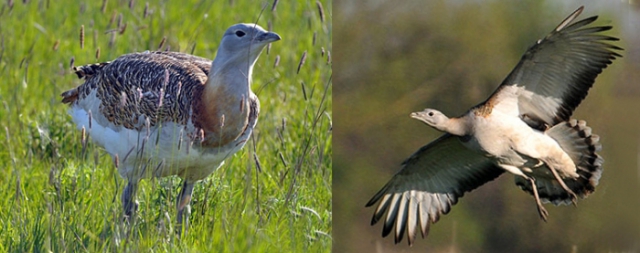ID :
347370
Tue, 11/11/2014 - 11:49
Auther :
Shortlink :
https://www.oananews.org//node/347370
The shortlink copeid
MONGOLIA’S PROPOSAL ON IMPROVING BIRD SPECIES CONSERVATION APPROVED

Ulaanbaatar /MONTSAME/ The suggestion on conservation of bird species named “Great Bustard” has been approved at the eleventh meeting of the Conference of the parties to the Convention on the Conservation of Migratory Species of Wild Animals (CMS).
The meeting ran on November 3-9 in Quito of Ecuador. Mongolia was represented by a head of Department for Foreign Cooperation of the Ministry of Environment and Green Development D.Batbold.
The proposal was approved along with other 31 from several countries on improving conservations of sharks, birds and gazelles. “Great Bustard” was moved to the Appendix I of the CMS from its Appendix II. “Great bustard” has been reported a population of 2,000 left in Russia, Mongolia and China, and some 300 in Central Asia.
The reproduction of the species are very slow in process as it takes approximately ten years for a female bird to be able to give offspring. The Secretariat of the Convention agreed, for the first round of activities, to collect funding for organizing an international conference on conservation of “Great bustard”.
The meeting also included Mongolia in the Standing Committee on implementing the convention and appointed Mongolia the deputy chairman of the Committee for a three-year term. The Deputy Chairman is obligated to participate in annual meetings, to take part in settlement of the issues occurred outside of the meetings, and to chair meetings of the Committee in the absence of a chairman. Mongolia will also serve as the Asian representative to the Financial Committee of the Convention.
The migratory species of wild animals have higher risks to lose their migrating territories due to hunting and to have food deficits during their ecological migrating periods. Thus the Convention on Conservation of Migratory Species of Wild Animals was enacted in 1979.
Mongolia joined the Convention in 1999, the parties to which must observe duties to protect the avian and aquatic animals and vertebrates that migrate through their territories. The Convention on CMS is ratified by 120 countries so far.





